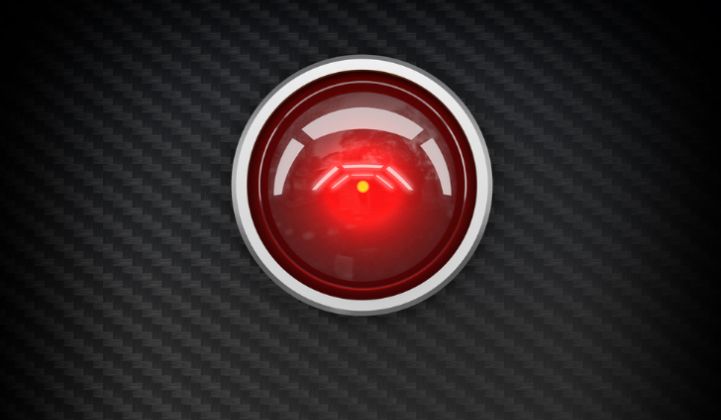With great power comes great power bills.
For Google, the massive network of data centers that powers the web giant’s operations run up a similarly massive energy tab. The company has been improving server farm efficiency for years, but it recently adopted a novel technique for trimming usage: letting the robots take control.
In particular, Google is giving the reins to an artificial intelligence system developed by its subsidiary DeepMind. The AI overlord succeeded in shaving several percentage points off of data center energy consumption, Bloomberg reported. This led to a 15 percent improvement in power-usage efficiency, the metric of how much power goes to the actual computing as opposed to auxiliary services at the data centers.
"[The AI] controls about 120 variables in the data centers. The fans and the cooling systems and so on, and windows and other things," DeepMind’s co-founder, Demis Hassabis, told Bloomberg.
A few percentage points might not sound like much, but that’s multiplied over a vast amount of energy. In 2014, Google consumed 4,402,836 megawatt-hours (that’s the overall company, not just the data centers). That year, U.S. data centers overall gobbled up 70 million megawatt-hours, which totaled 2 percent of the nation’s energy consumption. If DeepMind's (currently proprietary) technique becomes industry standard, it could save millions of megawatt-hours each year in the U.S. alone.
If letting a computer control the ins and outs of a vitally important piece of infrastructure sounds futuristic, perhaps that’s fitting for the web services that undergird the 21st-century economy.
Microsoft recently went public with a Jules Vernean approach to energy savings when it submerged a data center under the Pacific Ocean, using the cool water to passively chill the servers. And if you think server farms in space sounds too far-fetched -- well, there’s a company working on that, too.
Server farms are built from the ground up to maximize efficiency, because that has a direct impact on their owners’ profits. Google’s computer-assisted building management, though, could serve as a model for more conventional structures -- a more robust actualization of the “smart home” ideal. Having a home computer close your windows when the AC comes on or direct the cooling systems to rooms people occupy at a given moment could be attractive to homeowners. If we’re comfortable with the cloud running our lives, why not let computers run the cloud?



